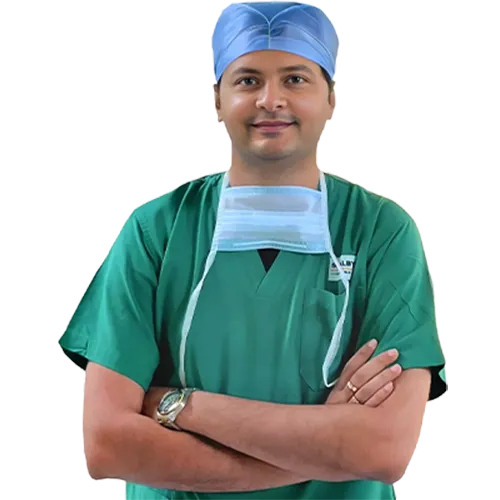Frozen Shoulder Treatment

Frozen shoulder, or adhesive capsulitis, is a condition that causes stiffness, pain, and limited movement in the shoulder joint. This occurs due to inflammation and thickening of the connective tissue surrounding the shoulder, leading to discomfort and restricted mobility. Dr. Aakash Patel, a renowned expert in frozen shoulder treatment, offers non-surgical interventions to help patients regain movement and reduce pain effectively.
What is Frozen Shoulder?
Frozen shoulder develops gradually and typically progresses in three stages: freezing, frozen, and thawing. Each stage has its own set of symptoms and recovery timelines.
Freezing Stage (Painful Phase)
- This phase lasts 6 weeks to 9 months.
- The shoulder becomes increasingly stiff and painful, making movement difficult.
- Pain worsens at night, affecting sleep quality.
Frozen Stage (Stiffness Phase)
- This stage can last 4 to 12 months.
- While pain decreases, stiffness worsens, severely limiting shoulder mobility.
- Patients struggle with daily activities like dressing or reaching overhead.
Thawing Stage (Recovery Phase)
- Lasts 6 months to 2 years.
- Shoulder mobility gradually improves, and pain subsides.
- Complete recovery depends on treatment and rehabilitation efforts.
Can Frozen Shoulder Heal on Its Own?
In some cases, frozen shoulder may resolve naturally, but the recovery process can take several years without proper treatment. While waiting for the condition to heal on its own, patients may experience prolonged discomfort and difficulty performing everyday tasks.
Factors Affecting Recovery Time
- Severity of the Condition: Mild cases may heal faster, while severe cases take longer.
- Age & Overall Health: Older adults or those with diabetes may experience prolonged stiffness.
- Activity Levels: Lack of movement can delay recovery.
- Medical Intervention: Early treatment speeds up recovery and minimizes pain.
Causes and Risk Factors of Frozen Shoulder
- Inflammation of Shoulder Capsule
The shoulder joint capsule thickens and tightens due to chronic inflammation, restricting movement. - Previous Shoulder Injury or Surgery
A history of shoulder surgery, fractures, or prolonged immobilization can increase the risk of developing frozen shoulder. - Underlying Health Conditions
Certain diseases increase the likelihood of frozen shoulder, including:- Diabetes (most common risk factor)
- Thyroid disorders (hypothyroidism/hyperthyroidism)
- Cardiovascular disease
- Hormonal Changes
Women, especially those in menopause, are more prone to frozen shoulder due to hormonal fluctuations affecting connective tissues.
Effective Treatments for Frozen Shoulder
Non-Surgical Treatment Options
- Physical Therapy: Exercises to stretch and strengthen the shoulder, improving mobility.
- Pain Medications: Anti-inflammatory drugs to relieve pain and inflammation.
- Steroid Injections: Corticosteroid injections to reduce pain and swelling in the shoulder joint.
- Hydrodilatation: Injecting sterile fluid into the shoulder capsule to stretch and loosen it.
Minimally Invasive Procedures
- Ultrasound-Guided Injections: A precise, non-surgical approach for pain relief.
- Manipulation Under Anesthesia (MUA): The shoulder is moved through a full range of motion under anesthesia to break up scar tissue.
Home Remedies & Lifestyle Changes
- Gentle Stretching Exercises (pendulum swings, wall crawls)
- Hot & Cold Therapy to reduce pain and inflammation
- Ergonomic Adjustments to daily activities to prevent further stiffness
Why Choose Dr. Aakash Patel?
Dr. Aakash Patel is a highly experienced specialist in shoulder pain and frozen shoulder treatment, offering advanced non-surgical therapies for faster recovery. His expertise in minimally invasive procedures allows patients to regain mobility without prolonged discomfort. With a personalized approach, Dr. Aakash Patel ensures each patient receives tailored care to restore shoulder function effectively.
Conclusion
While frozen shoulder may heal on its own over several years, early intervention can reduce pain, restore mobility, and shorten recovery time. Dr. Aakash Patel provides specialized treatments to help patients overcome frozen shoulder effectively without waiting years for relief.
If you're experiencing frozen shoulder symptoms, don’t delay treatment! Call us at +91 9586961070 or Book Your Appointment with Dr. Aakash Patel for expert care and long-term pain relief.



